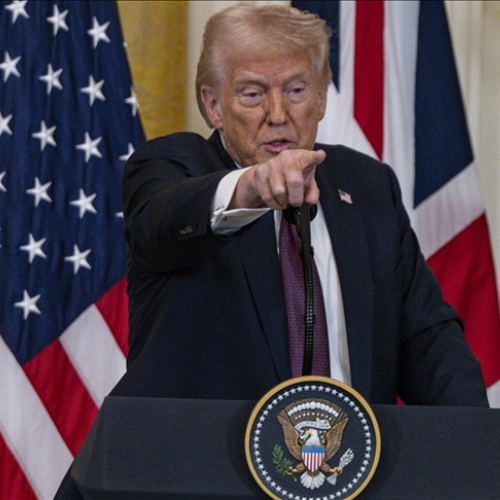On May 19, U.S. President Donald Trump told reporters in the Oval Office that he will not be imposing any further sanctions on Russia at this time. He explained that he believes there is still a chance to make progress toward a ceasefire between Russia and Ukraine. Because of this, Trump said he does not want to rush into more punishments, as that could make the situation worse.
Trump said, “I believe there’s a possibility of reaching an agreement, and rushing sanctions right now could actually make things worse.” He also mentioned that new sanctions might be imposed at some point in the future, but for the moment, he is deciding to hold off.
This announcement came after a long two-hour phone call between President Trump and Russian President Vladimir Putin earlier that day. During the call, Putin did not agree to a ceasefire. Rather, he proposed negotiating a “memorandum” about a possible peace treaty in the future with Ukraine. However, there is no clear timeline for when this document might be completed.
Kremlin spokesperson Dmitry Peskov said after the call that there was “no timeline” for finishing the memorandum. He told Russian state media TASS, “Everyone wants to move quickly, but the challenges lie in the details,” indicating that the process will take time and may be complicated.
EU Pushes for Tougher Sanctions While Trump Holds Back
Although there have been numerous threats of new sanctions, President Trump has not actually imposed any additional penalties on Russia. This is significant because Russia has repeatedly declined requests from the U.S., Europe, and Ukraine to agree to a 30-day unconditional ceasefire.
Meanwhile, the European Union is preparing a strong new sanctions package against Russia. Ukrainian President Volodymyr Zelensky said during a press briefing that the EU is working closely with Ukraine to impose harsh penalties on Russia. Zelensky called it an important “strong EU sanctions package” to pressure Moscow.
However, Trump’s comments seem to contradict those from European officials. On May 19, German government spokesperson Stefan Cornelius stated that the EU’s planned sanctions are being coordinated with the U.S. government. However, two sources familiar with Trump’s conversation with European leaders following his call with Putin said that Trump did not commit to imposing new U.S. sanctions on Russia.
This shows a clear difference between Trump’s approach and that of the EU and Ukraine.
Russia’s Position and the Path Forward
After the phone call between Trump and Putin, Kremlin spokesperson Dmitry Peskov explained that there is no set schedule for preparing the peace memorandum. He said everyone wants to move quickly, but warned that the details are complicated and will take time.
Putin’s offer to negotiate a memorandum is a step toward a possible future peace treaty with Ukraine, but it does not mean Russia has agreed to stop fighting right now. Moscow continues to refuse demands for an immediate ceasefire.
Because of this, many countries continue to push for stronger sanctions to pressure Russia. But for now, President Trump is holding back, hoping that waiting could help the peace talks move forward without making things worse.


